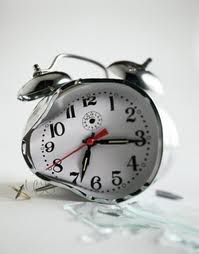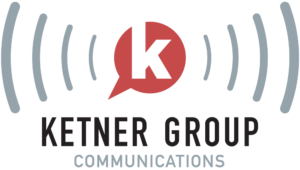 Daily agency life often feels like an elaborate juggling act—account managers constantly juggle accounts and each account’s unique priorities and deadlines. This requires switching gears throughout the day, usually several times an hour. The necessity of this workflow is obvious—we need to be available to our clients throughout the day as projects and issues pop up, and we strive to efficiently handle projects as if each account were our only account. The KG team prides ourselves on being flexible and in our ability to nimbly manage dozens of loose ends at a time. However, it would not be a stretch to call this style of work ‘multi-tasking,’ and from our recent series on productivity, we know that multi-tasking at its worst actually reduces productivity. The Wall Street Journal recently published an article on how to be more productive at work, and identified “fragmentation – trying to juggle many competing, and usually unexpected, demands on your time,” as the leading cause of an unproductive day and the root of the uncomfortable feeling that you worked really hard all day and yet have the sense that nothing got done. Yep, that’s a day KGers can relate to! How then do agencies limit the inefficiencies of multi-tasking in the face of competing demands on their time?
Daily agency life often feels like an elaborate juggling act—account managers constantly juggle accounts and each account’s unique priorities and deadlines. This requires switching gears throughout the day, usually several times an hour. The necessity of this workflow is obvious—we need to be available to our clients throughout the day as projects and issues pop up, and we strive to efficiently handle projects as if each account were our only account. The KG team prides ourselves on being flexible and in our ability to nimbly manage dozens of loose ends at a time. However, it would not be a stretch to call this style of work ‘multi-tasking,’ and from our recent series on productivity, we know that multi-tasking at its worst actually reduces productivity. The Wall Street Journal recently published an article on how to be more productive at work, and identified “fragmentation – trying to juggle many competing, and usually unexpected, demands on your time,” as the leading cause of an unproductive day and the root of the uncomfortable feeling that you worked really hard all day and yet have the sense that nothing got done. Yep, that’s a day KGers can relate to! How then do agencies limit the inefficiencies of multi-tasking in the face of competing demands on their time?
The WSJ article, “How to Save an Unproductive Day in 25 Minutes,” gives three suggestions for busy professionals to maximize efficiency when pulled in a million directions. The article resonated with me, and I wanted to share the tips and how they apply to agency life at KG.
1. Schedule uninterrupted work time—Whether you have to go hide in the empty conference room to escape the usually welcome antics of your awesome coworkers (pie! Funny YouTube clip!), pipe in some white noise to get you in the no-distraction zone like Eric does, or follow the Pomodoro Technique like Valerie does, actually scheduling dedicated time to completely focus on the most pressing task at hand can help check it off your to-do list faster.
2. Keep track of the progress you made that day—The WSJ recommends writing out everything you did at the end of a crazy day to give yourself a better sense of accomplishment. Personally I keep a running to-do list and find great satisfaction (possibly too much satisfaction) in checking things off that list. Sometimes I even tack on a few too-easy tasks that really shouldn’t count (making breakfast, putting new ink in the printer) just to make myself feel more productive! As the WSJ points out, perception is reality and just feeling more productive can make all the difference between a good day and a bad one.
3. Leave off in the middle—Here’s a productivity tip I hadn’t heard of, though it is a favorite of serious writers—Ernest Hemingway endorsed the method. I tend to call it a day when I’ve reached a true stopping point—I’ve just checked something off my list and there’s no time to start and finish something new. Hemingway says to take a different approach—don’t look for a good place to stop. Stop in the middle of a paragraph, or even the middle of a sentence…so long as you know where you’re going with the rest of that thought. What initially struck me as a crazy idea makes a lot of sense—the next day you can pick right back up and ease yourself into the task and recover that valuable train of thought, rather than arriving at work, taking one look at the overwhelming list of tasks to left undone, and not knowing where to start.
I don’t know if I can give up the tiny little mental high five I give myself when I check off a line item on my to-do list, but I think I’ll give suggestions one and three a solid shot. I thrive on structure and schedule time to work out, time to spend with my husband, and even time to do my household chores—why wouldn’t I give my workday a little more structure? Do you schedule working meetings with yourself, or stop in the middle of a paragraph? Let us know how you save an unproductive day in the comments.
